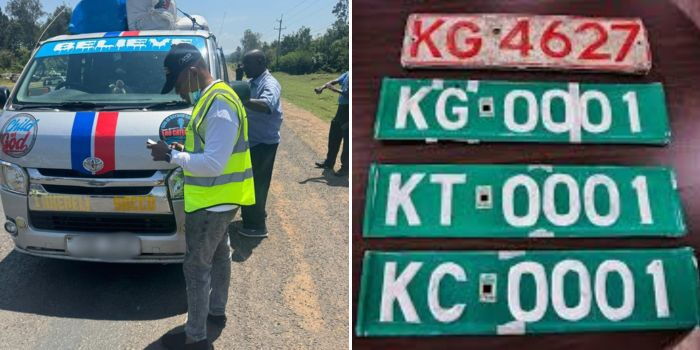New car buyers have been cautioned against falling victim to a rising scam involving temporary KD number plates, issued for vehicles awaiting permanent registration by the National Transport and Safety Authority (NTSA). The plates, meant to legally allow cars in transit on the road, have become a loophole exploited by unscrupulous brokers.
KD plates, short for “Kenyan Driver,” are valid for limited use. However, many motorists remain unaware of the strict regulations surrounding them, creating fertile ground for fraudsters. Brokers often position themselves as facilitators, offering to secure the plates for unsuspecting buyers. In some instances, motorists are charged a daily rental fee for plates that may not even be legally recognised by NTSA.
A particularly concerning element of the scam lies in insurance manipulation. Many buyers assume that having KD plates is sufficient to drive legally, overlooking the critical requirement of proper insurance. Fraudulent brokers exploit this by offering deceptive insurance plans that appear comprehensive but are often invalid.
One motorist revealed she unknowingly drove for nearly six months without proper insurance cover. After paying for what she believed was a comprehensive plan, the broker instead insured the KD plate itself. Once her permanent registration arrived, the cover was no longer valid, leaving her exposed to potential financial loss in case of an accident. She only discovered the issue after being flagged by police.
Other cases involve brokers issuing the same green KD plate to multiple clients while collecting daily rental fees. They then claim delays in NTSA processing to keep buyers dependent, all while the plates remain unauthorised and uninsured.
Authorities and industry experts are urging motorists to exercise caution. Buyers are advised to:
- Verify all insurance documents directly with established insurance providers.
- Insist on comprehensive cover linked to the vehicle’s chassis number, not the temporary plate.
- Avoid reliance on brokers and, where possible, manage insurance independently.
With Kenya’s growing car market, scams exploiting new buyers are becoming increasingly sophisticated. Vigilance, coupled with verifying documents at every stage, remains the surest safeguard against financial and legal jeopardy.

